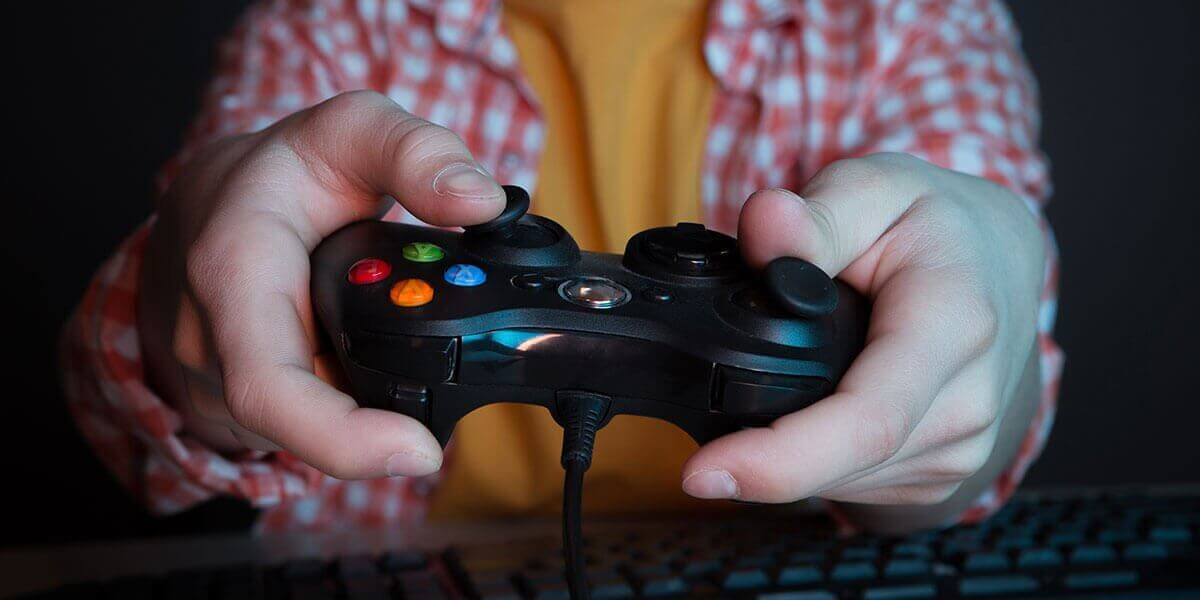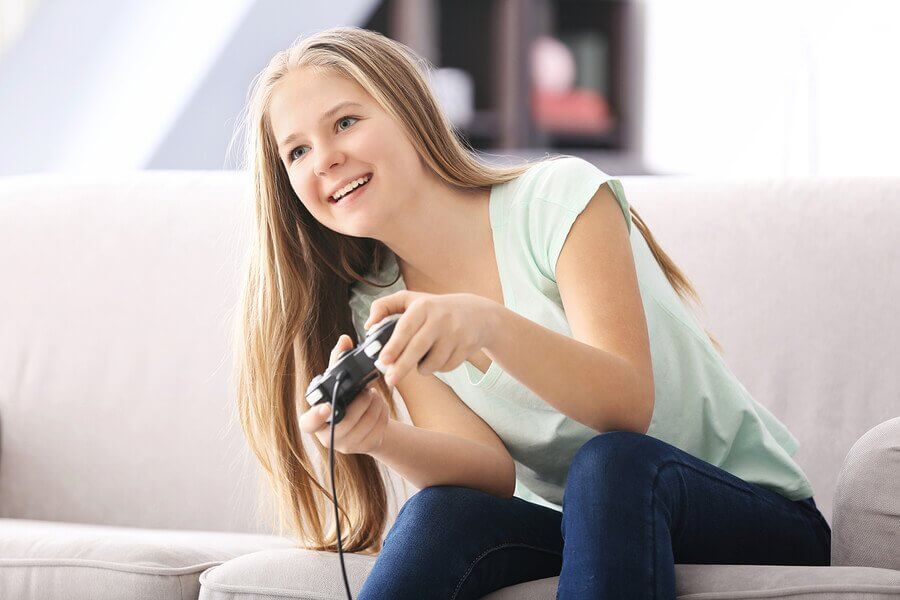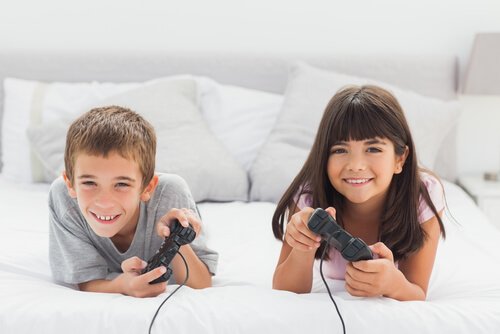My Child Is Hooked on Video Games

When it comes to video games, technology progresses every day, reflecting reality with amazing details. As a result, kids find them extremely entertaining and fun. But what happens when children become hooked on video games?
We’ll discuss the pros and cons of playing video games below, so keep reading.
Video games: good or bad?
Like most things in life, video games have two sides: one good, and one not so good.
First we’ll look at some positive aspects of this form of entertainment. That way, you can take them into account when you see your child playing them.
Benefits
- Stimulates hand-eye coordination. There are even video games that use the whole body, requiring kids to move even more.
- Exercises the imagination. They open the doors to new worlds and endless new situations.
- Helps children learn to tolerate losing and handle frustration.
- Enhances logic and the ability to make strategies and decisions.
- Online or multiplayer games help promote sociability in kids.
Disadvantages
- One of the main causes of a sedentary lifestyle.
- Could encourage violent behavior or aggressive language in children.
- Makes kids pay less attention to other educational resources, like books.
- Leads to isolation.
- Could even develop into a video game addiction.

When to worry if your child is hooked on video games
- He doesn’t interact with other people, even kids his own age.
- School performance goes down.
- He gets so distracted that he doesn’t stop to see the time, or take care of his basic needs well.
- He forgets important tasks or events because he’s playing.
- Your child is upset when you talk to him while he’s playing.
- He spends a lot of money buying games, accessories and new consoles. If he needs to earn them, he’ll demonstrate an unusual interest in doing all of his tasks to get the reward.
What to do if your child is hooked on video games
If we suspect our child might be hooked on video games, whether or not it’s an addiction yet, what should we do? The first thing is to set limits. Set schedules that your child needs to respect at all costs.
On the other hand, you can also use homework as an incentive. That way, your child will have to do his homework in exchange for play time. He’ll also start to feel a sense of responsibility.
However, as we pointed out before, he won’t be too interested in doing his work. He’ll be just interested enough to get to play his video games.
Another useful recommendation is to leave the console in a visible area of the house. This way, you can see how much time he spends playing it, and his behavior while he plays.
It’s also good to prevent him from sneaking extra play time and picking games with inappropriate content for his age.

Accompany him in the process
A common mistake is to get rid of an activity without offering an activity to replace it. For example, if you tell your child to give up video games but don’t give him anything else, he’ll figure that you just made him stop for no reason.
The best thing to do is propose plans that you can do together, like sports for the whole family. An afternoon playing sports or camping can be interesting for you, but you have to listen to what your child wants to do.
Always keep in mind that persuasion is a much more effective tool than punishment. In addition, it’ll be a good excuse to spend quality time together.
Video games aren’t harmful to children if no signals are present. During childhood, it can be a way to have fun and relax. When kids grow up and develop other interests, they’ll learn to manage their time in different ways.
You’ll even see how they make video games into a social event, organizing tournaments with friends and others who share the same hobby.
All cited sources were thoroughly reviewed by our team to ensure their quality, reliability, currency, and validity. The bibliography of this article was considered reliable and of academic or scientific accuracy.
- Alcántara Garrido, Mº. C. (2008). Los videojuegos y los efectos psicológicos en los adolescentes. Los videojuegos en la docencia. Innovación y experiencias educativas, Nº 4.
- Fernández, L. C. (2011). Ocio Digital Activo. Beneficios y perjuicios a nivel social y psicológico. Lecturas: Educación física y deportes, (161), 9. https://dialnet.unirioja.es/servlet/articulo?codigo=4189899
- Rodríguez, E. (2002). Jóvenes y videojuegos: espacio, significación y conflictos. Instituto de la juventud.
- Salguero, R. T. (2001). La adicción a los videojuegos. Una revisión. Adicciones, 13(4), 407-413. http://es.adicciones.es/index.php/adicciones/article/view/555